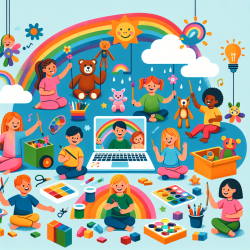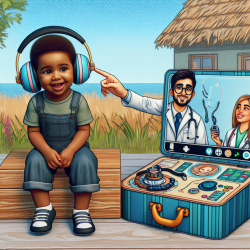At the heart of child development lies a simple yet profound truth: play is essential. It's not just about fun and games; play is a critical component of healthy brain development. As highlighted by the Institute of Child Psychology, play allows children to use their creativity while developing their imagination, dexterity, and physical, cognitive, and emotional strength.
The Importance of Play
Play is a powerful tool for children to explore the world they live in. It helps them develop a sense of mastery over their environment, building confidence and self-advocacy skills. According to Stuart Brown, M.D., play encourages the "exploration of the possible," allowing children to imagine different scenarios and outcomes.
- Play supports healthy brain development by engaging various parts of the brain.
- It helps children adjust to new settings, enhancing learning readiness and problem-solving skills.
- Undirected play teaches children how to work in groups, share, negotiate, resolve conflicts, and build confidence.
The Role of Play in Emotional Well-being
Play is more than just a developmental tool; it is crucial for emotional well-being. It provides an outlet for children to express their feelings and navigate complex emotions. In a world without play, children may experience depression, lack empathy, become rigid, and struggle with interpersonal conflicts.
Attachment and Attunement
Attunement through play creates a secure attachment between children and caregivers. This connection is vital for emotional regulation and fosters a sense of safety and trust. The Institute of Child Psychology emphasizes that a secure attachment style enables children to feel loved, safe, and ready to face life's challenges.
The Neurobiology of Play
Research shows that species with larger brains engage in more play activities. Play begins in the brainstem and moves through the limbic system to the cortex, increasing pre-frontal cortex functioning. This part of the brain regulates emotions, enhances planning abilities, problem-solving skills, memory retention, attention span, and language development.
Therapeutic Play: A Pathway to Healing
Therapeutic play is an engaging and creative experience that increases levels of oxytocin—often referred to as the "love hormone." This supports emotional well-being and trust between the child and therapist. In this safe space, children can express themselves freely without fear of judgment or reprimand.
Therapists use attunement to connect with children's emotional states accurately. This empathetic connection provides an optimal environment for creating new neural pathways. Through co-constructing narratives without words, therapeutic play honors the child's emotional world while guiding them toward healthier ways of being.
The 4C's of Healthy Development
- Courage: Encouraging children to face life's tasks and take risks.
- Connect: Fostering socialization through playful interactions.
- Capable: Helping children feel competent and self-reliant.
- Count: Instilling a sense of significance and ability to make a difference.
For more information on therapeutic play techniques and their benefits for child development, please follow this link.










